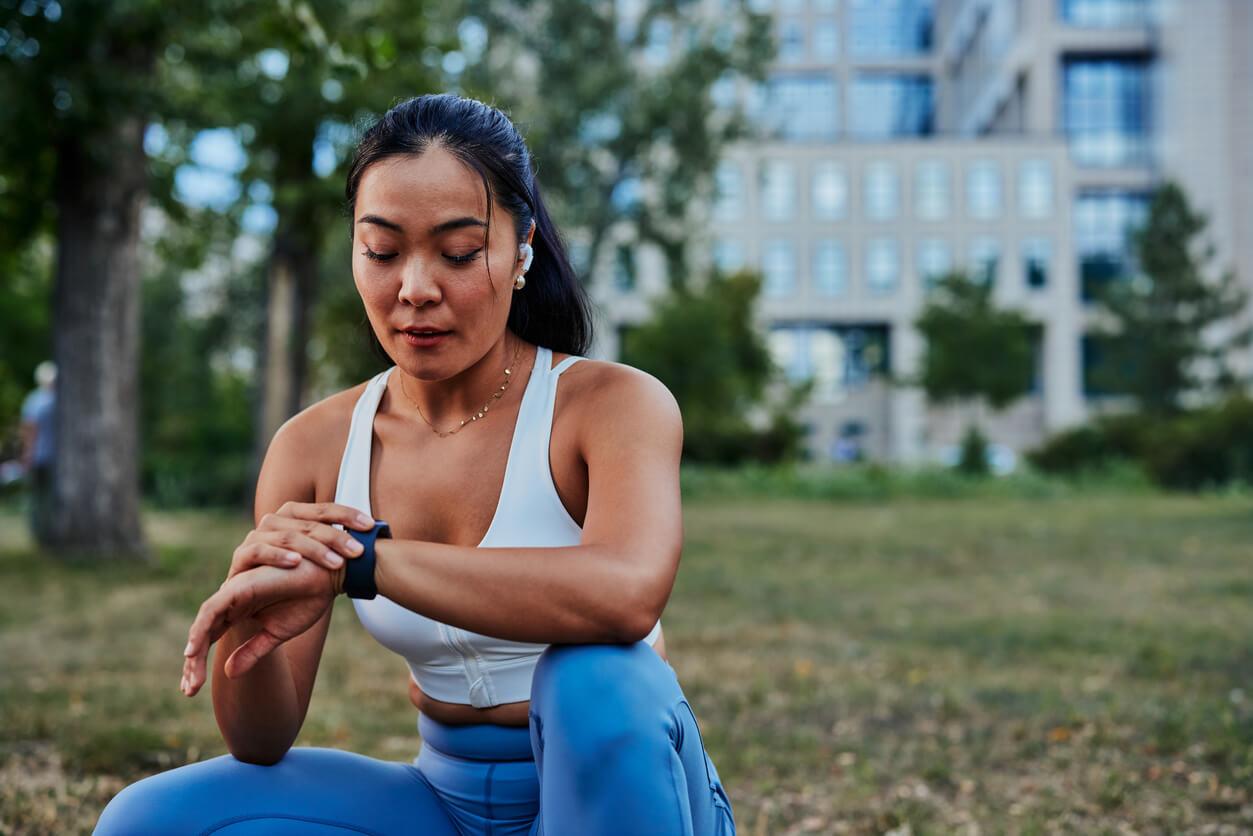How Does Exercise Improve Mental Health?
A guide to the mental health benefits of exercise
If you’ve spent any time on this blog reading about cozy cardio, boosting your metabolism, or improving your lung capacity, you know that we are devoted advocates of exercise for wellness. But regular exercise does more than improve your physical health. Those familiar with the “runner’s high” know that physical activity can also positively affect your mental well-being.
Regular physical activity is one of the first forms of treatment for a wide range of mental health conditions. This article will explain the mental health benefits of exercise, the best type of exercise for mental health, and how much you need.
How Does Exercise Improve Mental Health?
The effects of exercise on mental health are potent and plenty. Exercise encourages the release of certain chemicals—more on them below—that offer a range of benefits on the brain and nervous system.
These benefits include:
- Reduced symptoms of depression and anxiety
- Improved self-confidence and self-esteem
- Improved memory
- Stress relief
- Increased energy levels
- Improved sleep
- Increased sex drive
In addition, physical exercise can provide the opportunity to get outside. Exposure to nature—in other words, getting outside—has also been shown to improve mental health.
Exercise can also be a great social activity. You can go on a brisk walk with a friend or join a yoga class with a bunch of fellow yoga enthusiasts. A healthy social life is also linked to improved mental health, so working out with others (especially outside) offers multiple mental health benefits.
The combined effects of exercise offer profound and sustainable help with mental health and overall quality of life. But exercise also can improve the symptoms of specific mental health conditions such as depression and anxiety.
How Does Exercise Help Depression and Anxiety?
Exercise prompts our body to release endorphins and serotonin, which are chemicals that make us feel good. They are also released when we eat a good meal, have sex, or fall in love. These chemicals ease pain, balance mood, and reduce stress.
The release of these chemicals from regular exercise prevents depression and anxiety disorders. It is also a core treatment method for these two common mental illnesses
Serotonin is a chemical produced by the nervous system that sends signals to the body. It controls mood and helps you feel calm and focused. It also improves the quality and quantity of your sleep. Many antidepressants and anti-anxiety medications work by increasing serotonin levels in the brain.
The release of serotonin and endorphins naturally reduces the symptoms of depression and anxiety. They also help treat risk factors of mental health problems like:
- Low self-confidence
- High stress levels
- Poor sleep quality
These many benefits are why exercise is one of the first treatment options recommended by healthcare providers for mental health issues.
What’s the Best Kind of Exercise for Mental Health?
Aerobic exercise eases the symptoms of mental health conditions while improving mental wellness.
Aerobic exercise—also known as cardiovascular exercise or “cardio”—is any type of exercise that raises one's heart rate and increases the amount of oxygen the body uses.
Examples of aerobic exercise include:
- Jogging
- Cycling
- Brisk walking
- Dancing
- Hiking
- Swimming
Even moderate exercise has proven benefits for mental health, so start gradually. As your fitness improves, you can increase the intensity of your exercise.
In general, the CDC recommends adults get:
- 150 minutes of aerobic exercise weekly (like those listed above)
- 2 sessions of muscle-strengthening activities (like weight lifting or bodyweight exercises)
Before starting a new exercise program, talk to a healthcare professional, like your primary care provider. They can help you create a workout plan that fits your fitness level and needs and provide guidance to help you avoid injury or burnout (getting too fatigued from working out).
What Are the Other Benefits of Exercise?
Your physical health and mental health are linked. Mental disorders like depression and schizophrenia have been shown to cause physical health problems.
Studies show that patients with mental illness have a greater risk of conditions such as:
- High blood pressure
- Stroke
- Obesity
- Diabetes
- High cholesterol
- Sexual dysfunction
- Dental problems
- HIV
Similarly, chronic health issues can increase your risk of mental disorders like depression or anxiety. By keeping your body healthy, you are working to keep your mind healthy too
Regular physical activity can improve your general wellness by:
- Improving your cardiovascular fitness
- Lowering blood pressure and cholesterol (which reduces your risk of heart disease)
- Helping your body manage blood sugar levels (which can help manage type 2 diabetes)
- Encouraging weight loss (which helps prevent obesity)
- Improving bone health
- Reducing the risk of cancer and infections
How to Start Exercising
You don’t have to join your nearest CrossFit gym or start marathon training to get the benefits of exercise. In fact, jumping into an intense workout routine right away will leave you vulnerable to injury and burnout. Before starting an exercise program, consult with a healthcare provider.
You should be able to inhale and exhale steadily while performing aerobic exercises. If you find yourself running out of breath or unable to keep up the activity for longer than a few minutes, you may need to adjust your exercise.
If the idea of joining your local gym or going on a run stresses you out, don’t do it. Feeling stress or anxiety about working out can be counter-productive.
You can slowly start to build your fitness with these simple tips:
- Try some cozy cardio
- Take a long, brisk walk with a friend or loved one
- Bike or walk to an appointment instead of driving
- Organize a family bike ride around your neighborhood
- Exercise in smaller chunks (5-10 minutes) instead of trying to last for a full half-hour
- Find a fun activity to do (like dancing or Pickleball)
These tips can help you meet your movement goals in a fun and social way. Getting outdoors and socializing also help improve the symptoms of mental illness, making doing activities with others (especially outside activities) a mental wellness double-whammy.
When to Seek Mental Health Care
If you’re feeling stressed, anxious, or depressed, try doing some of your favorite exercises to see if your mood changes. Exercise can significantly improve your mental well-being but should not be considered a “cure-all” for mental health disorders. Some conditions, like bipolar disorder, post-traumatic stress disorder, and schizophrenia, require medical and mental health care practices for treatment. Some cases of depression and anxiety may also require a more comprehensive treatment plan for you to feel better.
Some common symptoms of depression include:
- Persistent feelings of sadness, hopelessness, or loneliness
- Outbursts of irritability or anger
- Loss of interest or pleasure in activities, especially activities that bring pleasure like hobbies or sex
- Sexual problems/ sexual dysfunction
- Sleep problems like insomnia or sleeping too much
- Slowed speech
- Tiredness or lack of energy
- Reduced appetite or weight loss
- Weight gain
- Impaired or slowed thinking
- Restlessness and anxiety
- Suicidal thoughts
Some common symptoms of anxiety include:
- Excessive worry
- Restlessness
- Irritability
- Fatigue
- Difficulty concentrating
- Muscle tension
- Sleep problems
- Rapid heartbeat
- Sweating
- Digestive issues
- Panic attacks
If you are exercising regularly but still experience the symptoms of depression or anxiety, you should speak to a healthcare provider or mental healthcare professional. Physical activity can reduce symptoms of these conditions, but in some cases, psychotherapy—also known as talk therapy—is required for treatment. In others, medication may be required. Your provider can talk you through the best treatment options for you.
How Sesame Can Help
Whether you’re looking for mental health care or help with your fitness routine, Sesame can help. Sesame offers a range of health services, including online mental health appointments and primary care appointments that let you address your concerns from your home. Speak to a mental health care provider about your symptoms, or get medical advice on a healthy exercise plan. If appropriate, providers on Sesame can prescribe medication to treat your condition or refill an existing prescription. Book a visit today and take that first step toward feeling better.









